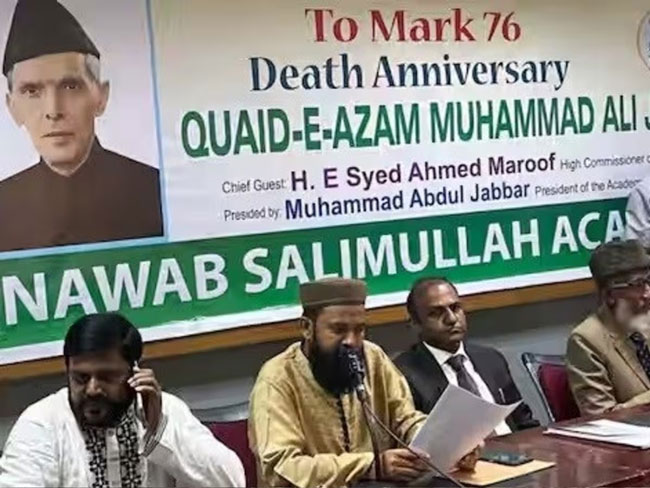Dhaka: Has Bangladesh Changed Now? After the ousting of the Sheikh Hasina government on August 5, the current situation in the country suggests just that. Under the leadership of Muhammad Yunus, an interim government is in power, and lately, even criticisms of Mujibur Rahman, who led the Bangladesh Liberation War, have surfaced. Shockingly, during violent protests, statues of Mujibur Rahman, revered as “Bangabandhu,” have been smashed with hammers in several places across the country. In fact, demands have surfaced to declare Muhammad Ali Jinnah, the founder of Pakistan, as the Father of the Nation in Dhaka.
On Wednesday, a program was held at the Dhaka Press Club to commemorate the 76th death anniversary of Muhammad Ali Jinnah. During the event, Jinnah was remembered, and demands were made to officially declare him the Father of the Nation in place of Mujibur Rahman. Bangladesh came into existence in 1971 following a liberation struggle, primarily sparked by conflicts over the Bengali and Urdu languages. This movement led to the creation of Bangladesh, separating from what was then East Pakistan. The Awami League has been closely linked to this legacy, but following Sheikh Hasina’s exile, pro-Pakistan elements have gained prominence.
Groups like Jamaat-e-Islami, which fought against Bangladeshis alongside the Pakistani army during the liberation war, now seem to be regaining strength. The event at the National Press Club of Dhaka featured Urdu poetry recitals and speeches by several attendees. During the event, a demand was also raised to change the national flag and anthem of Bangladesh. Such demands have come as a major blow to liberals in Bangladesh and have raised significant concerns. Similar sentiments are also growing on social media in Bangladesh.
Several speakers at the event went as far as to say that Bangladesh has gained independence twice—once on August 14, 1947, and the second time on August 5, 2024. Notably, the year 1971, when Bangladesh was created, was not mentioned. In this way, the speakers implied that separating from Pakistan was a mistake. Along with this, demands were renewed to declare Jinnah as the true Father of the Nation.




